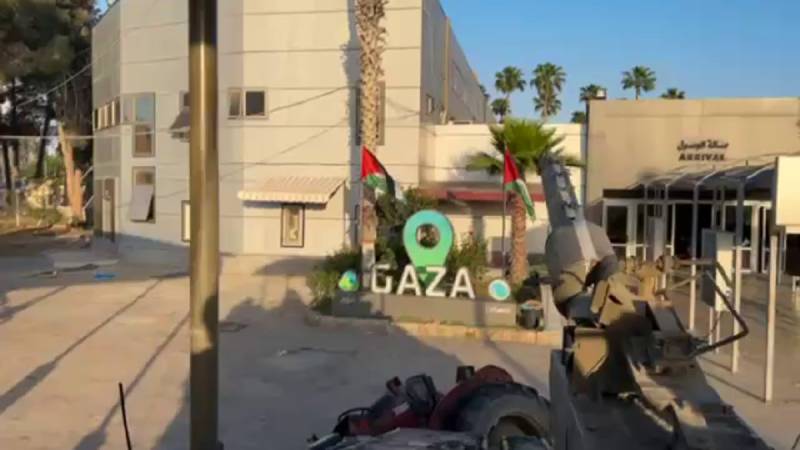
The International Court of Justice (ICJ), in a landmark ruling on Friday, ordered Israel to "immediately" halt its ongoing military operation in Rafah and reopen the Rafah border crossing with Egypt.
The directives from the top United Nations court came as international pressure mounted on Israel over seven months into the Gaza war.
The International Court of Justice also ruled that Israel must also keep open the land border crossing with Egypt at Rafah in the south of the Gaza Strip. Earlier in the month, Israel had launched its long-anticipated military operation in Rafah by swiftly moving to take over and seal the Rafah border crossing, effectively cutting off the last land connection that Palestinians in Gaza had to the outside world and one of the last places where nearly two million inhabitants could get critical aid such as food, water, fuel and medicines.
The ICJ ordered Israel to ensure the crossing remains open for "unhindered" humanitarian aid to pass and urged the "unconditional" release of hostages taken by Hamas during its October 7 assault.
While ICJ rulings are legally binding, the court has no concrete means to enforce them. This is a similar case to the applications filed earlier in the week to issue arrest warrants for Israeli Prime Minister Benjamin Netanyahu and Defence Minister Yoav Gallant, and Hamas leaders, including Yahya Sinwar and Ibrahim Haniyeh.
The court said Israel must "immediately halt its military offensive, and any other action in the Rafah Governorate, which may inflict on the Palestinian group in Gaza conditions of life that could bring about its physical destruction in whole or in part."
Israel had earlier argued before the court that an order to stop military activity in Rafah would give free rein to Hamas extremists and prevent its army from rescuing hostages taken in the group's brutal October 7 attack. Prior to Israel's incursion into Rafah, Hamas had agreed terms for a ceasefire that included the release of Israeli hostages. Netanyahu, however, rejected the deal.
Following Friday's ruling, Netanyahu announced he would convene a meeting of his senior ministers to chart a future course of action.
South Africa, which took Israel to the global court for committing genocide, hailed the ruling, with Foreign Minister Naledi Pandor saying it was a "much stronger... set of provisional measures, very clear call for a cessation."
South Africa brought the case before the ICJ last year, alleging that Israel's Gaza offensive breached the 1948 UN Genocide Convention -- a charge strongly denied by Israel.
In a ruling on January 26 that made headlines worldwide, the ICJ ordered Israel to do everything it could to prevent acts of genocide during its military operation in Gaza.
The ICJ on Friday also ordered Israel to ensure "unimpeded access" to UN-mandated investigators to look into allegations of genocide.

